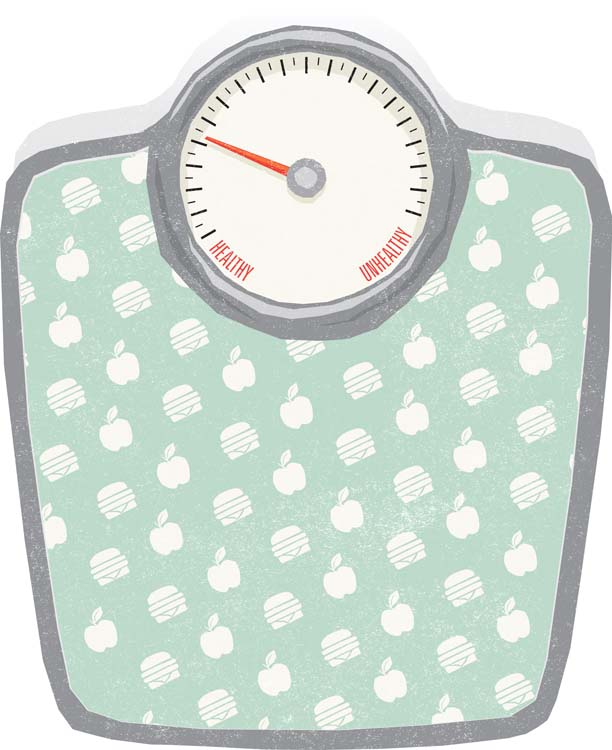 Weight loss is a journey. The winding, twisting road of sustaining a healthy weight is challenging in every sense of the word. Young or old, rich or poor, for different reasons Americans struggle with weight management. Fitness myths, waist trainers, obsessive behaviors, fad diets т you name it, we have done it all. We have endured just about every downside to weight gain, too: stigmatization, bullying, social isolation, depression, low self-esteem, and hopelessness.
Weight loss is a journey. The winding, twisting road of sustaining a healthy weight is challenging in every sense of the word. Young or old, rich or poor, for different reasons Americans struggle with weight management. Fitness myths, waist trainers, obsessive behaviors, fad diets т you name it, we have done it all. We have endured just about every downside to weight gain, too: stigmatization, bullying, social isolation, depression, low self-esteem, and hopelessness.
According to the National Institutes of Health and the Centers for Disease Control and Prevention, more than 2 in 3 adults and 69 percent of adults age 20 years and older are considered to be overweight or obese. In spite of the potentially serious health consequences, many people rely on advice from weight-loss hacks instead of adopting wellness strategies that tackle the root of problematic behaviors. Unlike weight-loss quick fixes, wellness strategies allow individuals to experience continual success while walking that fine line of caloric balance.
We all have our personal experiences, and the reasons behind these obesity statistics are complicated. Several factors such as poor accessibility to resources, expensive costs, and lack of environmental support make it tough for people to lead healthy lives. A common setback is that we are not sufficiently equipped with the education and skills needed to be healthy. Whether it be young adults routinely making unhealthy food choices, coaches being unfamiliar with basic nutrition advice to give to their athletes, or parents unaware of the value and convenience of meal planning, we are all somehow involved in this cyclic pattern of acting upon myths and a mediocre understanding of diet and exercise.
Many Americans are working toward managing their weight. But most of us aim for weight loss with unrealistic expectations. Health fitness professionals put forth a great effort publicizing weight-loss tactics. They convince us their methods will produce the best results. Subsequently, we spend $19.5 billion on health club membership fees and gym equipment; $8.25 billion on medical plans; $2.69 billion on meal replacements and diet pills; and $2.32 billion on low calorie/diet foods, according to the 2010 Calorie Control Council National Consumer Survey.
Unfortunately, we do not realize new habits take time to develop. Gaining an understanding that weight management is a process will promote the maintenance of healthy behaviors. According to the National Wellness Institute, wellness is an active process of becoming aware of and making choices toward a more successful and healthy existence. Research suggests that the best method in successful weight management is to make small, gradual, and realistic changes. While on this journey it is important to remain patient with yourself. For instance, a previous weight management patient of mine began his wellness journey by doing 10-minute bouts of exercise throughout the day. This later progressed to 30-minute gym visits 2-3 times per week.
Proper education helps you develop health-related skills and leads to positive behavior changes, which form healthy habits needed for lifelong diet and exercise adherence. Portion control, habitual physical activity, nutrition label reading, and other good habits minimize barriers and equip consumers with the knowledge and skills needed to be physically fit and nutritionally sound for a lifetime. My colleague, a fellow clinician, learned how to convert the number of steps taken per day into miles. She increased her activity level by purchasing a pedometer, and walking the hospitalтs campus with co-workers.
At the start of your wellness journey, revisit basic fitness and nutrition information. Ask questions and seek professional advice on how to apply the information to your daily routine. You can be a newbie to diet and exercise who needs the social support of a group exercise class and the guidance of a nutritionist. Perhaps you are a gym junkie and suddenly find yourself with limited income and need inexpensive resources. Or you could be like me, a regular person who struggles with consistency because life is unpredictable. There are strategies for us all, and professionals who can help. After a thorough assessment, certified professionals tailor health behavior programs to your personal motivations and circumstances. This process ultimately helps people reach desired outcomes.
In the midst of leading a healthier life, remember wellness is more important than weight loss. An active lifestyle inevitably triggers weight loss as long as it is accompanied with quality nutrition. Combat troublesome barriers by enhancing current healthy habits and working to learn more about the behaviors you hope to practice. Weight loss is only one component of your overall wellness, and your wellness journey is a marathon, not a sprint. Slow and steady wins this race.
Camilla Nelson, M.Ed, is a registered clinical exercise physiologist candidate with the American College of Sports Medicine.
|
| Ь§ |
|








